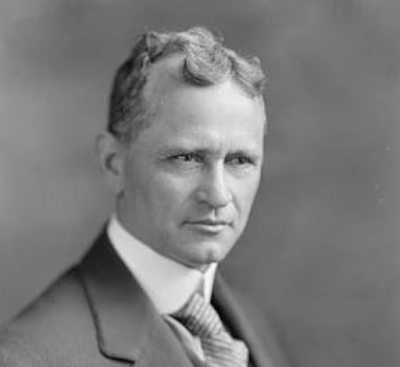As we reach the end of this election cycle, my mind keeps coming back to two things.
First, what an abomination the election process is. People start running again, especially in the US House, the moment they are elected. This makes the country be in election mode practically the whole time. In addition, the amount of money spent on the election makes me bilious. It is not possible to have fair elections with that amount being thrown at the various races - particularly when so much of it comes from corporations, PACs, etc. And, of course, there is the tone and content of political discourse. It is often vulgar and untrue, and, what's even worse, people buy into the whole process. It's sick. Winning is now the only thing that counts (with very few exceptions). Sadly, it is becoming impossible to have a reasonable discussion with friends who hold differing views. Some of my friends are going to great length to avoid any politics at social gatherings.
Oh that we could emulate, for example, the Danish election. The prime minister called for an election on October 5 (this year), and the election was over yesterday - basically a month, and it was done and dusted.
The second thing that has been on my mind is the economy, or more accurately the discussion of the economy. I was with friends recently, long-time friends, salt of the earth, smart, well-read, whose political views are generally conservative. We were very cautiously talking about the upcoming elections. One thing that struck me is the extent to which we relied on sound bites to convey our opinions: 'tax the rich', 'democrats tax and spend!', 'republicans give tax cuts to the rich!', 'a wealth tax will solve the problems!', 'trickle-down economics works!', 'trickle-down economics is the root of all evil!', and so on. We said these things, parrot-like, with little or no deeper knowledge of what we were talking about.
Needless to say we left with the same views as those we brought to the table.
What made me doubly sad, is that these discussions haven't changed in the years I've been in the States. Word bites, sound bites. Shout. Scream. And more recently, hate is creeping into the whole process.
What we need is a fresh, new approach to economics.
As I pondered these issues, I remembered the ideas and words of one of my favourite philosophers and economic thinkers - a man who live a hundred years ago: Alfred W Lawson. Maybe, I thought, maybe we don't need new ideas. Perhaps we should adopt old ideas - Lawson's ideas.
Alfred William Lawson, born in London, England, on March 24, 1869, which he later claimed was “the most momentous occurrence since the birth of mankind”. Three weeks later his family moved to Canada and three years later settled in Detroit. He was a man of many talents – professional baseball player, publisher, aviation pioneer, physicist, economist, philosopher, and university president.
Owing to the brightness and scarcity of gold, as well as to its glittering appeal for childlike people, that metal was principally used as money in the beginning, and eventually became the standard of money value throughout the world.But the visible supply of gold in the world could not keep pace with the ever increasing population who needed money for trading purposes, and credit then came into vogue which permitted trade to be carried on many times larger in amount than there was gold to pay for it.And because there was not enough money for everybody to use there were men who made it their business to get control of it and make everybody pay for its use in the shape of interest.
No autocrat of any type ever held such power over human beings as is held by the present international financiers who control the supply of money. They are the real masters of office holders, manufacturers, merchants and workmen. And they are gradually screwing them all down to nothingness.The branch of capitalism which allows interest to be charged on money, has not only paralyzed mankind, but it is the two-edged sword that will destroy Capitalism unless abolished at once.
There is no end to this interest-paying game. It is a series of circles running around within circles. It would require a lifetime to explain, so that everybody could understand, how it keeps people struggling for a pitiful existence; to explain how the money masters, who produce nothing, are overloaded with wealth and power, while everybody, who produces everything is reduced to beggary.
Capitalism can be made to work, yes, but not before this undermining parasite called interest is exterminated.
The system of Direct Credits will work for everybody. It will give work to everybody, opportunities to everybody, credit to everybody, money to everybody, nourishment to everybody, comforts to everybody, education to everybody, character to everybody, intelligence to everybody, and justice to everybody.It will let Capital live in a clean way. It will let Labor co-operate with Capital on a fair basis. It will make Capital and Labor staunch friends who will work together in harmony for the benefit of everybody.It will allow reasonable profits to the manufacturers and merchants. It will give high wages to workmen so they can purchase what they need from the merchants and utilise every useful thing made by the manufacturers.
Our forefathers fought, bled and died that we could have the right to vote, but suffrage is worthless to everybody if it is used to keep in power international financiers who control 90 percent of the wealth produced by everybody.
At present if the government needs money for improvements or other things, it borrows it and issues interest paying bonds which are turned over to privateers for less money than the bonds call for. The government is forced to do this, the same as individuals and corporations, because there is not enough money in circulation to meet general expenses.In this manner the government is kept in perpetual debt trying to pay the different interests upon the different bonds that are forever accumulating.


















Has there been two trials of this, and they worked? It encouraged enterprise, small businesses thrived, those folk that couldn't work were supported. Was one in Sweden? One in the States somewhere? I might be talking nonsense but Alan was talking about it.
ReplyDeleteStan says: https://economictimes.indiatimes.com/news/economy/indicators/free-money-makes-people-lazy-a-lesson-for-india-from-finland/articleshow/67911284.cms
ReplyDeleteThe estimate of how much has been spent thus far on the midterm elections is $16.7 BILLION, with some billionaires "committing" to spend "a billion" in 2024 on their Presidential candidates. Thank you, SCOTUS, for Citizens United.
ReplyDelete